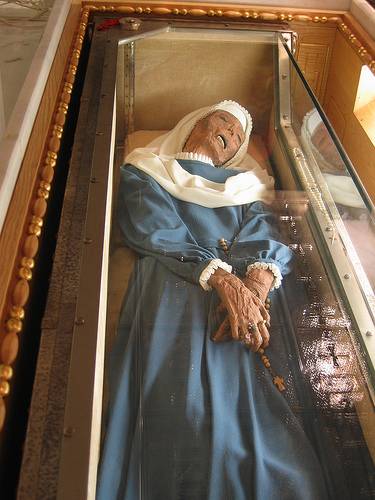
Virginia Centurione Bracelli died in 1651, but her body was found largely uncorrupted when her grave was opened 150 years later.
She was canonized in 2003.

Virginia Centurione Bracelli died in 1651, but her body was found largely uncorrupted when her grave was opened 150 years later.
She was canonized in 2003.
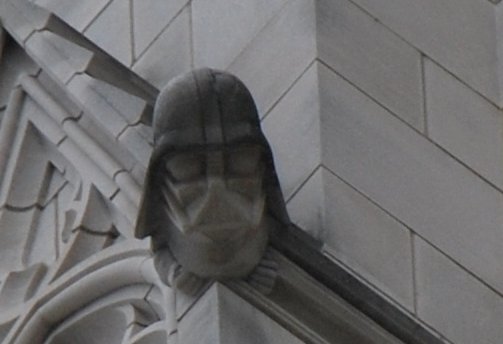
There’s a sculpture of Darth Vader on Washington’s National Cathedral.
During construction, a competition was held among children to suggest a carved grotesque, and Christopher Rader of Kearney, Neb., submitted a drawing of Darth Vader’s head.
It’s visible on the cathedral’s northwest tower — but you’ll need binoculars to see it.
Apparitions of the Virgin Mary, 2003-2007:
“Men never do evil so completely and cheerfully as when they do it from religious conviction.” — Pascal
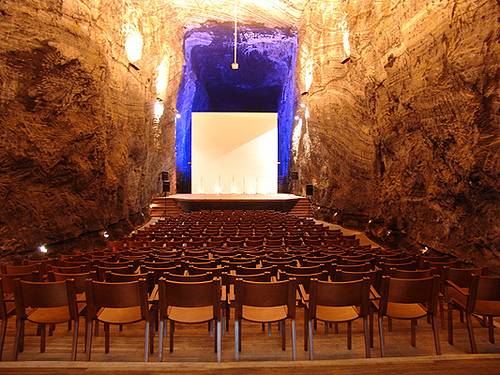
What is it with salt miners? Apparently inspired by Poland’s Wieliczka mine, which features a salty Last Supper, Colombia has built an entire salt cathedral, complete with 14 chapels representing the stations of the cross. Don’t they have work to do?
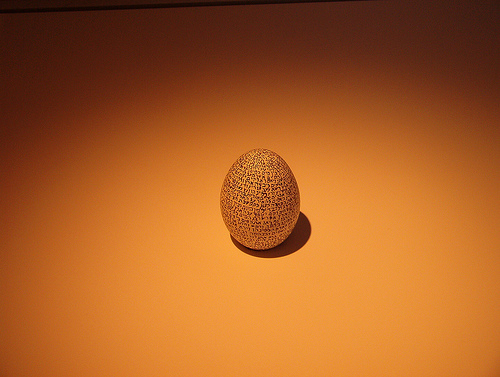
The first chapter of Genesis, written on an egg.
From the Jerusalem Museum.
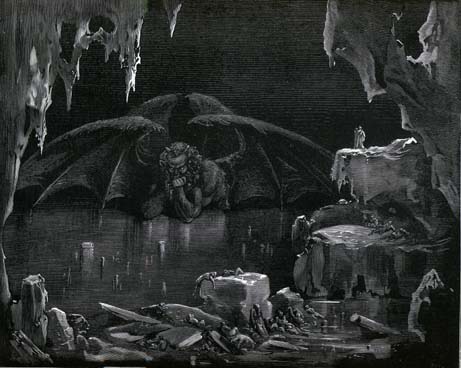
Says Tom to Bill, pray tell me, sir,
Why is it that the devil,
In spite of all his naughty ways,
Can never be uncivil?
Says Bill to Tom, the answer’s plain
To any mind that’s bright:
Because the imp of darkness, sir,
Can ne’er be imp o’ light.
— Charles Carroll Bombaugh, Gleanings for the Curious From the Harvest-Fields of Literature, 1890
Modern atheists:
“Atheism,” said George Carlin, “is a non-prophet organization.”
In 1394, a pig was hanged at Mortaign for having sacrilegiously eaten a consecrated wafer; and in a case of infanticide, it is expressly stated in the plaintiff’s declaration that the pig killed the child and ate of its flesh, “although it was Friday,” and this violation of the jejunium sextae, prescribed by the Church, was urged by the prosecuting attorney and accepted by the court as a serious aggravation of the porker’s offence.
— E.P. Evans, The Criminal Prosecution and Capital Punishment of Animals, 1906
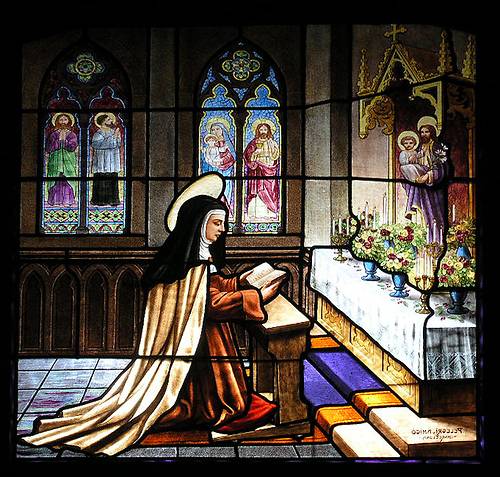
Curiously, St. Teresa of Ãvila died on the same night that the Catholic world switched from the Julian to the Gregorian calendar.
The switch occasioned a 10-day correction — so Teresa died on Thursday, Oct. 4, 1582, and the next day was Friday, Oct. 15.